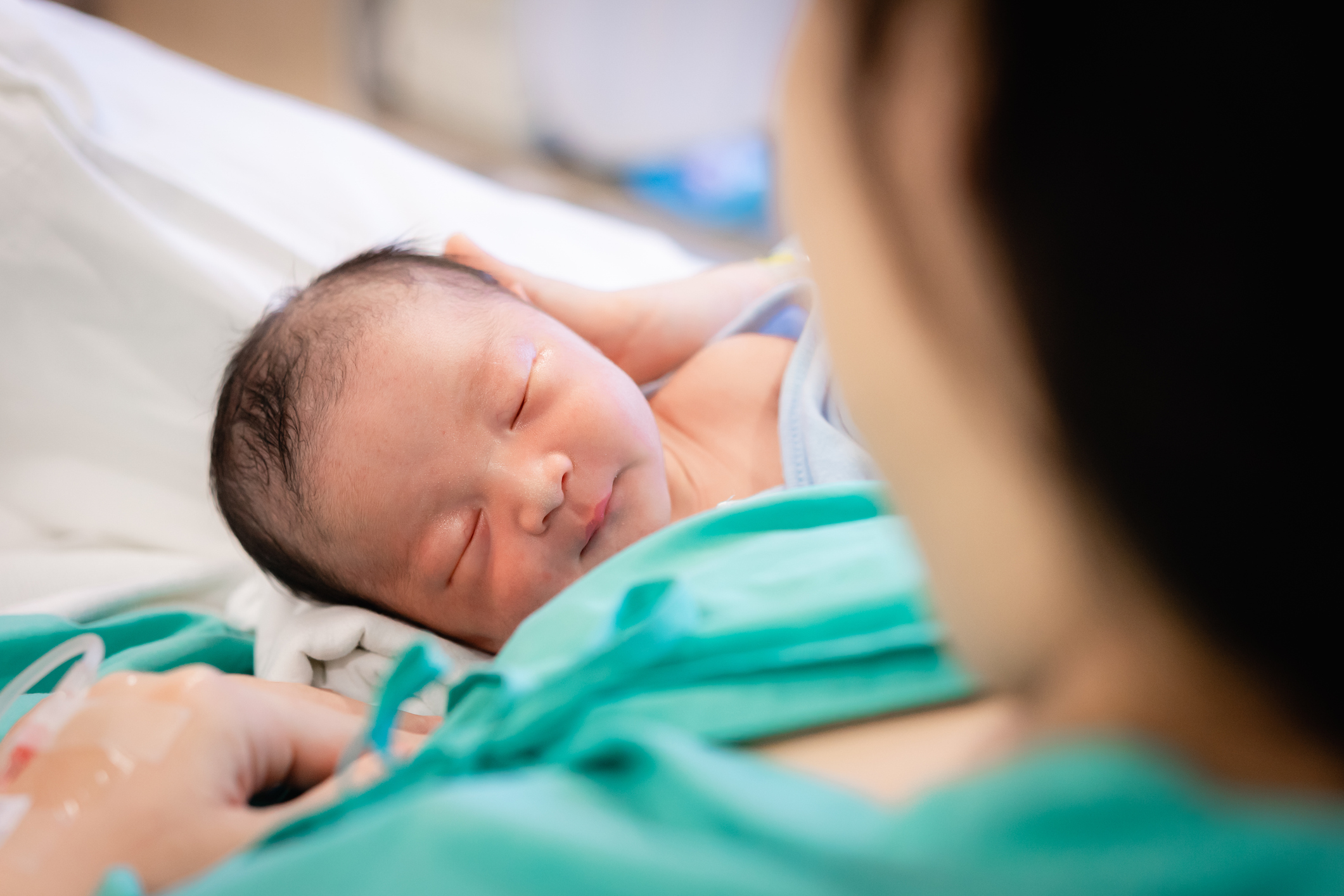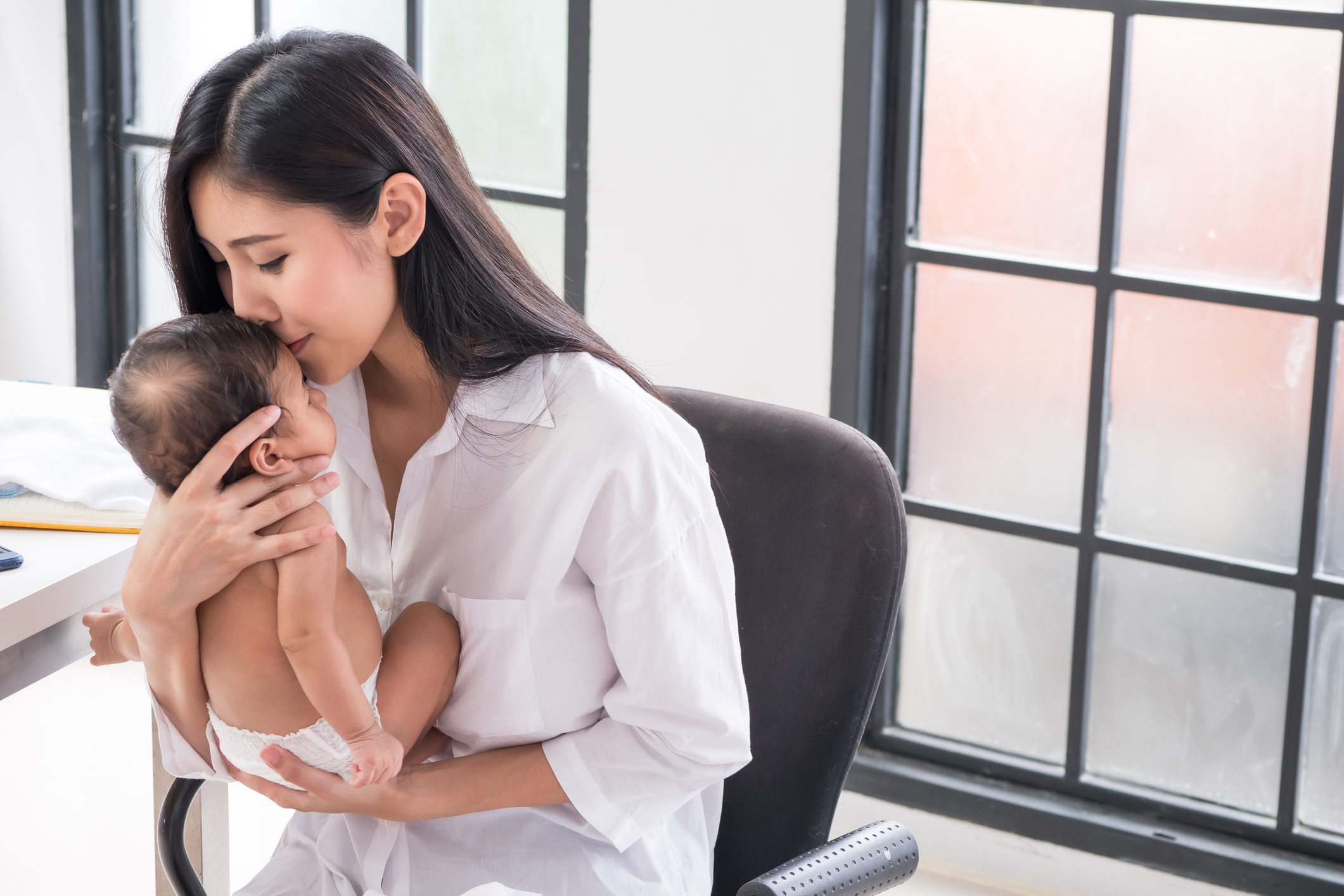What is the postnatal period?
The postnatal period is a transformative journey for both mother and baby. As a time of recovery, adjustment, and bonding, postnatal care plays a crucial role in ensuring the well-being of the new mother and facilitating a healthy start for the newborn.
In Singapore, postnatal care is highly valued, and a combination of cultural practices and modern healthcare approaches contributes to a holistic and supportive environment for new mothers.
How long are you postnatal?
Traditional postnatal confinement practices are common in Singapore. This includes the confinement period of around 30 to 44 days according to different cultures, during which the mother is encouraged to rest, avoid certain foods, and receive massages.
During this time:
Rest and recovery: The mother is encouraged to rest both physically and emotionally to allow her body to recover from the demands of pregnancy and childbirth.
Nutrition and care: Special attention is given to the mother's diet, with an emphasis on nourishing, easily digestible foods believed to support postpartum recovery.
Avoidance of activities: There is often a restriction on certain activities, such as avoiding strenuous physical tasks or exposure to cold, with the aim of promoting healing.
The concept is rooted in cultural beliefs about promoting the well-being of the mother and ensuring a healthy recovery after childbirth. While the specific practices and duration may vary across cultures, the underlying principle is to prioritise the mother's physical and emotional health during the early postpartum period.
How much rest do you need postpartum?
The amount of rest needed postpartum varies among individuals and can depend on factors such as the type of delivery, overall health, and individual circumstances. However, healthcare professionals generally recommend that new mothers prioritise rest and recovery during the postpartum period.
First few days: The immediate days following childbirth often involve more intensive rest, allowing the body to recover from the physical demands of labour and delivery.
First few weeks: In the first few weeks postpartum, mothers are encouraged to get ample rest, take short naps during the day, and avoid overexertion. Sleep patterns may be irregular due to the newborn's feeding schedule.
First six weeks: The initial six weeks are considered a crucial period for postpartum recovery. During this time, mothers are often advised to limit strenuous activities, prioritise self-care, and accept help from family and friends.
What are the stages of postpartum?
The postpartum period, also known as the postnatal period, is generally divided into several stages, each with its own characteristics and challenges. These stages may vary in duration for different women, but they provide a general framework for understanding the postpartum journey:

Immediate postpartum stage (hours to days):
This stage begins immediately after childbirth and extends through the first few hours or days.
Focus is on initial recovery, bonding with the baby, and adjusting to the new family dynamic.
Early postpartum stage (first six weeks):
Encompasses the first six weeks after childbirth.
Focuses on physical recovery, managing postpartum symptoms, and adapting to changes in daily routines.
Obstetrician/gynaecologist will monitor the mother's and baby's health during postpartum check-ups.
Mid postpartum stage (six weeks to six months):
Spans from six weeks to about six months postpartum.
Mothers may experience continued physical recovery, hormonal changes, and adjustments to motherhood.
Emotional well-being and support become crucial during this period.
Late postpartum stage (six months and beyond):
Extends beyond six months postpartum.
Focus shifts towards long-term physical recovery, ongoing parenting challenges, and adjusting to new family dynamics.
Mothers may resume more regular activities and exercise based on their health and comfort.
Extended postpartum stage (beyond one year):
This stage includes the period beyond one year postpartum.
Mothers continue to navigate the challenges of parenthood, and emotional well-being remains important.
Family roles and dynamics further evolve.
What should you not do after giving birth?
After giving birth, new mothers are advised to avoid certain activities and behaviors to promote optimal recovery and well-being. These recommendations may vary based on the type of delivery (vaginal or cesarean section) and individual health conditions.
Generally, you are advised to:
Avoid strenuous activities:
Limit heavy lifting and strenuous exercises, allowing the body time to heal. Intense exercise should be postponed until your obstetrician/gynaecologist clear it during the postpartum check-up.
Postpone sexual activity:
Most obstetricians/gynaecologists recommend waiting until after the postpartum check-up to resume sexual activity.
Avoid driving:
After a cesarean section, driving is often restricted for a few weeks. Follow your obstetrician/gynaecologist’s advice.
Avoid hot tubs and saunas:
Heat can affect blood pressure and may not be suitable during the early postpartum period.
Skip certain medications:
Check with your obstetrician/gynaecologist before taking any medications, as some may interfere with breastfeeding or recovery.
Avoid ignoring signs of complications:
Report any unusual symptoms, such as excessive bleeding, fever, or severe pain, to healthcare providers promptly.
Avoid neglecting self-care:
Prioritise self-care, including proper nutrition, hydration, and adequate rest.
Not to skip postpartum check-ups:
Attend scheduled postpartum check-ups to monitor recovery and address any concerns.
Not to ignore emotional well-being:
Seek support for emotional well-being. Postpartum mood disorders can affect new mothers, and seeking help is important.
Postpartum checkups

Mothers are advised to attend postnatal check-ups with healthcare providers. These check-ups monitor the physical and emotional well-being of both mother and baby. Mothers, especially those with underlying medical illnesses, for example, pregnancy induced hypertension or chronic hypertension will need frequent blood pressure monitoring during the postpartum period. Some may be advised to monitor blood pressure at home using a home blood pressure monitor. For gestational diabetes mellitus or preexisting diabetes mellitus, insulin or oral medications may need adjustment accordingly during postpartum.
Baby vaccinations
Ensuring that the baby receives recommended vaccinations is a crucial aspect of postnatal care. This includes the following vaccines:
Bacillus Calmette-Guerin (BCG)
Hepatitis B (HepB)
Diphtheria, tetanus, and acellular pertussis
Inactivated poliovirus (IPV)
Haemophilus Influenzae type B (HiB)
Pneumococcal conjugate (PCV10 or PCV13)
Nutrition and dietary practices
Confinement diet:
Traditional confinement diets often include specific foods believed to promote healing and recovery. This may include herbal soups, broths, and nutrient-rich foods.
Balanced nutrition:
Modern postnatal care emphasises the importance of a well-balanced diet rich in nutrients for both mother and baby.
Encourage the mother to maintain a well-balanced diet to support lactation.
Breastfeeding support
Community support:
You can look for community support from WhatsApp mummies groups, Facebook breastfeeding support groups and lactation consultants.
Hospitals:
Many hospitals in Singapore promote breastfeeding as the preferred method of infant feeding.
Emotional well-being
Family support:
Emotional well-being is a priority, and families play an important role in providing support. Extended family members often assist with household tasks, allowing the new mother to focus on recovery.
Postnatal depression awareness:
There is a growing awareness of postnatal depression in Singapore. Healthcare providers encourage open communication, and support services are available for all mothers experiencing emotional challenges.
Traditional therapies and practices
Traditional massage:
Traditional postnatal massage is commonly practiced to help improve blood circulation, relieve muscle tension, and promote overall well-being.
Herbal remedies:
The use of herbal remedies, such as herbal baths and drinks, is often incorporated into postnatal care practices.
Postnatal exercises
While rest is emphasised during the early postnatal period, gentle exercises, such as postnatal yoga or walks, are encouraged once you receive clearance from your obstetrician/gynaecologist.
Contraception considerations
You can discuss contraception options with your obstetrician/gynaecologist, considering your health status, potential impacts on blood glucose control and blood pressure.
Conclusion
In Singapore, the integration of traditional practices with modern healthcare ensures a comprehensive approach to postnatal care.
The emphasis on physical recovery, emotional well-being, and family support creates an environment where new mothers can thrive as they embrace the joys and challenges of motherhood.
Postpartum care for mothers with hypertension and diabetes mellitus requires individualised and collaborative management. It involves ongoing monitoring, medication adjustments, and support to ensure a smooth transition into the postpartum period while safeguarding the health of both the mother and the baby.
It is crucial for new mothers to work closely with healthcare providers to tailor postnatal care plans that meet their individual needs and cultural preferences.
FAQ
What is the hardest day of postpartum?
The hardest day of postpartum varies for each woman, but many find the first few days particularly challenging due to physical recovery, sleep deprivation, emotional adjustments, breastfeeding challenges, and adapting to newborn care. Adequate support is crucial during this transitional period.
How long after birth can you resume normal activities (work/exercise)?
The timing for resuming physical activities varies for each individual and depends on factors such as the type of delivery and overall health. During the postpartum period, rest is prioritised. It is advisable to gradually resume activities based on one's physical recovery. Generally, obstetricians/gynaecologists recommend gradually incorporating gentle exercises, such as walking and pelvic floor exercises, after receiving clearance during the postnatal checkup.
What are the physical changes after giving birth?
Physically, mothers may experience changes such as uterine contractions (afterpains), vaginal bleeding (lochia), breast engorgement, and perineal soreness or stitches. Understanding and managing these changes are essential aspects of postnatal care.
Are there breastfeeding support groups or lactation consultants in Singapore?
Yes, there are breastfeeding support groups and lactation consultants available to assist new mothers. Many hospitals like Thomson Medical Centre offer breastfeeding education and support services.
What are effective methods for breastfeeding and how can I overcome the challenges of breastfeeding?
Successful breastfeeding requires proper latching, positioning, and a supportive environment. Common challenges include nipple pain, engorgement, and concerns about an adequate milk supply. Seeking guidance from lactation consultants and joining breastfeeding support groups can provide valuable assistance.
How do I manage postpartum fatigue and sleep deprivation?
Postpartum fatigue is common due to disrupted sleep patterns. Prioritising rest, accepting help from others, and establishing a sleep routine for both the mother and the baby can aid in managing fatigue. It is essential to communicate with your partner and support network to share responsibilities.
What support is available for postnatal depression in Singapore?
Awareness of postnatal depression is growing in Singapore. Support services, including counseling and mental health resources, are available. Seeking help from healthcare providers or support groups is encouraged for those experiencing emotional challenges.
What vaccinations are recommended for the newborn during the postnatal period?
Newborn vaccinations are an essential part of postnatal care. Doctors will recommend vaccinations according to the national immunisation schedule, including the following vaccines:
Bacillus Calmette-Guerin (BCG)
Hepatitis B (HepB)
Diphtheria, tetanus, and acellular pertussis
Inactivated poliovirus (IPV)
Haemophilus Influenzae type B (HiB)
Pneumococcal conjugate (PCV10 or PCV13)
Do you naturally lose weight after pregnancy?
Yes, natural weight loss occurs after pregnancy, primarily due to the expulsion of the baby, amniotic fluid, and placenta. Additionally, breastfeeding and a healthy postpartum lifestyle contribute to gradual weight loss.
Is it safe to get a massage postpartum?
Yes, postpartum massage is generally safe and can offer benefits like relaxation and muscle tension relief. However, it's important to wait until after the initial postpartum period and get clearance from your doctor.
Does your cervix fully close after birth?
Yes, the cervix undergoes changes during labor to allow the baby to pass through the birth canal. After childbirth, the cervix gradually closes and returns to its pre-pregnancy state.
For more information, contact us:
Thomson ParentCraft Centre
- +65 6251 4090 (Call), +65 9119 3502 (WA)
Thomson Specialists (Women's Health)
- Paragon (female doctor): +65 6735 0300
- Woodleigh: +65 8684 0153
Thomson Women's Clinic (TWC)
- Bukit Batok: +65 6569 0668
- Choa Chu Kang: +65 6893 1227
- Jurong: +65 6262 8588
- Punggol: +65 6243 6843
- Sembawang: +65 6753 5228
- Sengkang: +65 6388 8125
- Serangoon (female doctor): +65 6382 3313
- Tampines: +65 6857 6266
- Tiong Bahru: +65 6276 1525
Dr Ryan Lee Wai Kheong
Obstetrics & Gynaecology (O&G)
Thomson Specialists Woodleigh (Women's Health)
English, Mandarin
Adept, MHC, HSBC, Alliance MediNet and 1 other

